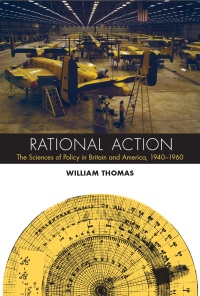Terminology: Art, Literary, and Music History; History of Philosophy; and History of Scientific Knowledge June 12, 2013
Posted by Will Thomas in Terminology.Tags: Andrew Warwick, David Hollinger, David Kaiser, Lev Tolstoy, T. S. Eliot
4 comments
When we start dividing up sub-categories within the history of thought or the history of ideas, we make distinctions of convenience: between explicit and tacit ideas, for instance, or between different genres of thought. These distinctions do not get at some internal essence of a form of thought. What they really do for us is provide us with provisional guidelines as to what forms of analysis are likely to lead to insights into things like: the genesis of an expression (“where did this weird idea come from?”), the circumstances bearing upon the form of expressions (“why did the author choose to publish that pamphlet at that time?”), and its relations with other expressions (“what did that film have to do with that book that appeared a couple of years earlier?”).
In my last post in this series, I marked out “intellectual history” as a sub-genre that can derive insight from the analysis of particular details of particular works, and that is centrally occupied with how works and their creators respond to prior and contemporaneous works. In this post I will look at some areas that fit in and around the sub-genre of intellectual history: art/literary/music history, the history of philosophy, and the history of scientific knowledge. As always, no historian need confine themselves to a particular genre, and the comments are open for clarification, dissent, and debate.
Latour and the Semiotic Phenomenology of Science and Society July 26, 2009
Posted by Will Thomas in History as Anti-Philosophy.Tags: Bruno Latour, Harry Collins, Lev Tolstoy, Louis Pasteur
add a comment
 No discussion of historiography and the Great Escape from the philosophy of science can long exclude Bruno Latour, though it is important to remember that Latour urges: “I cannot claim [the honor] of being a historian…. I use history as a brain scientist uses a rat, cutting through it in order to follow the mechanisms that may allow me to understand at once the content of a science and its context” (Pasteurization of France, p. 12).
No discussion of historiography and the Great Escape from the philosophy of science can long exclude Bruno Latour, though it is important to remember that Latour urges: “I cannot claim [the honor] of being a historian…. I use history as a brain scientist uses a rat, cutting through it in order to follow the mechanisms that may allow me to understand at once the content of a science and its context” (Pasteurization of France, p. 12).
In a move typical of the Great Escape, though, Latour relies on historiographical coherence to deny philosophy its place. It is significant that Latour begins his work The Pasteurization of France (1988, a translation and revision of 1984’s Les Microbes: Guerre et Paix) by drawing a parallel with Tolstoy’s historical debunking of the Napoleonic Wars as playing out according to the design of genius military architects. History, in all its contingency, can know no architecture, despite those who would impose one retrospectively: “Even if few people still believe in the naive view, courageously defended by epistemologists, that sets science apart from noise and disorder, others would still like to provide a rational version of scientific strategy, to offer clear-cut explanations (more…)
(more…)
Projects and Problems as Elements of History April 24, 2009
Posted by Will Thomas in Methods.Tags: Andrew Warwick, Augustin Jean Fresnel, David Brewster, Jed Buchwald, Lev Tolstoy, Lorraine Daston, Martin Kusch, Marxist historiography, Michel Foucault, Peter Galison, Sigmund Freud
add a comment
One important theme in the history of science profession is that there is a perceived need for increased methodological sophistication. “We” (as a profession, and as a society) need to “think about science”, or more broadly, “think about knowledge and practice” in different and exciting new ways in order to really get at the history of science, and the relationship between science, technology, and society, and to avoid being misled by dubious scientific or anti-scientific claims.
Methodological sophistication is important. It has only been methodological reflection that warns us against, for example, necessarily regarding “religion” as a “constraint” on “science”, when, for example, theological issues might have been a “resource” in a natural philosophical cosmology. Or, we can now appreciate that the world did not “resist” Einstein’s relativity for some years, but rather that different communities did not understand it as important or germane to their physical projects (following Andrew Warwick on Cambridge physicists, or Peter Galison on Poincaré).
In my opinion, though, methodologically we are generally pretty sound, and have been for at least two decades, if not longer. To continue to act as though methodology were still our most pressing problem is to ignore the question of how we might attain and retain understanding through better historiographical craft. In this respect, there are some areas where we are doing very well, which need to be highlighted for those not working in them, and there are areas where we seem to be actually losing knowledge (as a community, anyway).
Rather than go into specific examples in this post, I would like to lay out what I view as the essential problems of good historiographical craft—the charting of the relationship between historical projects, “problems” in those projects, and the proper handling of the nature and role of context. (more…)
